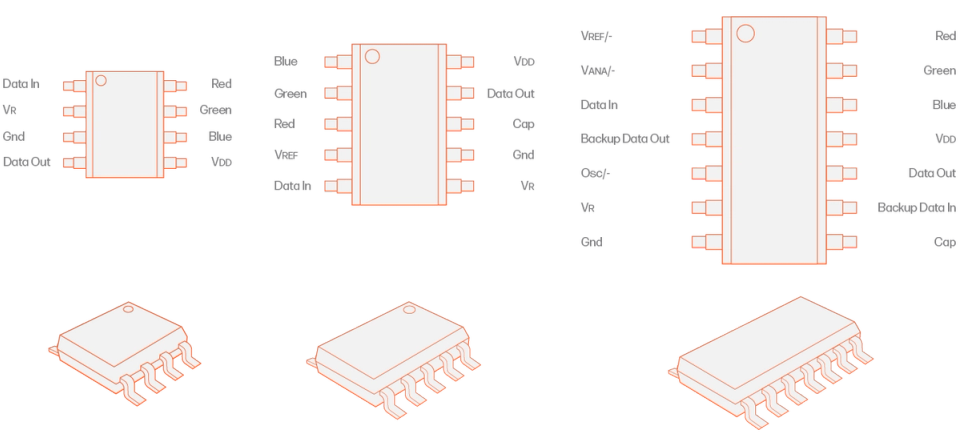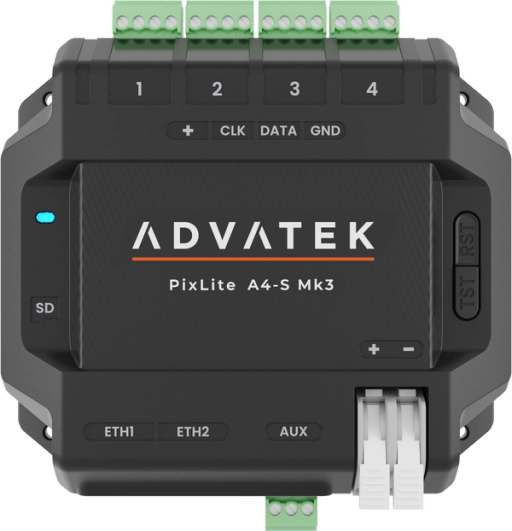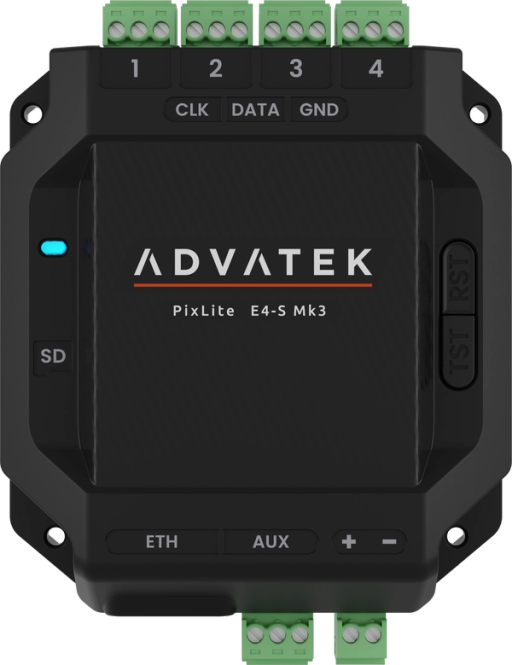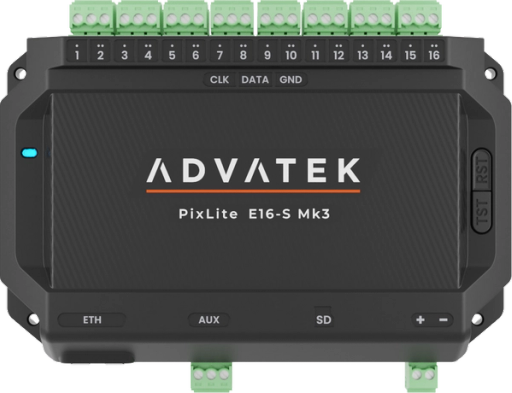Overview
This pixel protocol was designed by QED MicroElectronics Inc. in China. The control circuit can come in a SOP8/SOP10/SOP14 package, depending on which functions are being used, allowing for more flexibility with LED choice.

QED3001 pixel protocol
Specifications
PixLite Mk1 | |
PixLite Mk2 | |
PixLite Mk3 | |
Clock Type | Data-Only |
Color Resolution | 12 Bits |
Current Control | |
Physical Package | SOP8/10/14 |
RGB | |
RBGW | |
Input Voltage | 5V |
Output Pixel Voltage | 5 - 32V |
PWM Rate | 1000Hz |
Suitable Camera | Up to 34fps |
Data Transfer Rate | 500 - 1000kbps |
Redundant Data Line | (SOP14 only) |
Considerations for Use
Advantages
- High PWM rate allows for filming these pixels with cameras up to 34fps
- Up to 32V, allowing for very long cable lengths
- Option for redundant data line reduces chance of entire strip failure
- 12 bits of data for each color makes dimming curves more smooth
Disadvantages
- Data-only restricts refresh rates to be limited by the speed of the protocol, which can be slow
Operational Behavior
On start-up, only the first QED3001 pixel in a chain will illuminate for a second, while the pixels initialize themselves. When initialization has completed, all pixels will proceed to respond to their incoming data.
Need Help with Your Next Project?
PixLite Support
Are you looking for QED3001 pixel drivers that work with Art-Net or sACN?
All PixLite Mk3 products support QED3001 as an available Pixel IC type, so get in touch with us to find out how the lighting specialists at Advatek can support you in your pixel lighting project.

PixLite® A4-S Mk3
Driving up to 24 universes of data, and offering easy mounting, sleek design and electrical fault protection — what’s not to love?

PixLite® E4-S Mk3
The E-series LED pixel controller is made for tighter budgets thanks to its ability to drive up to 24 universes of LED pixel control and route power directly to LEDs.

